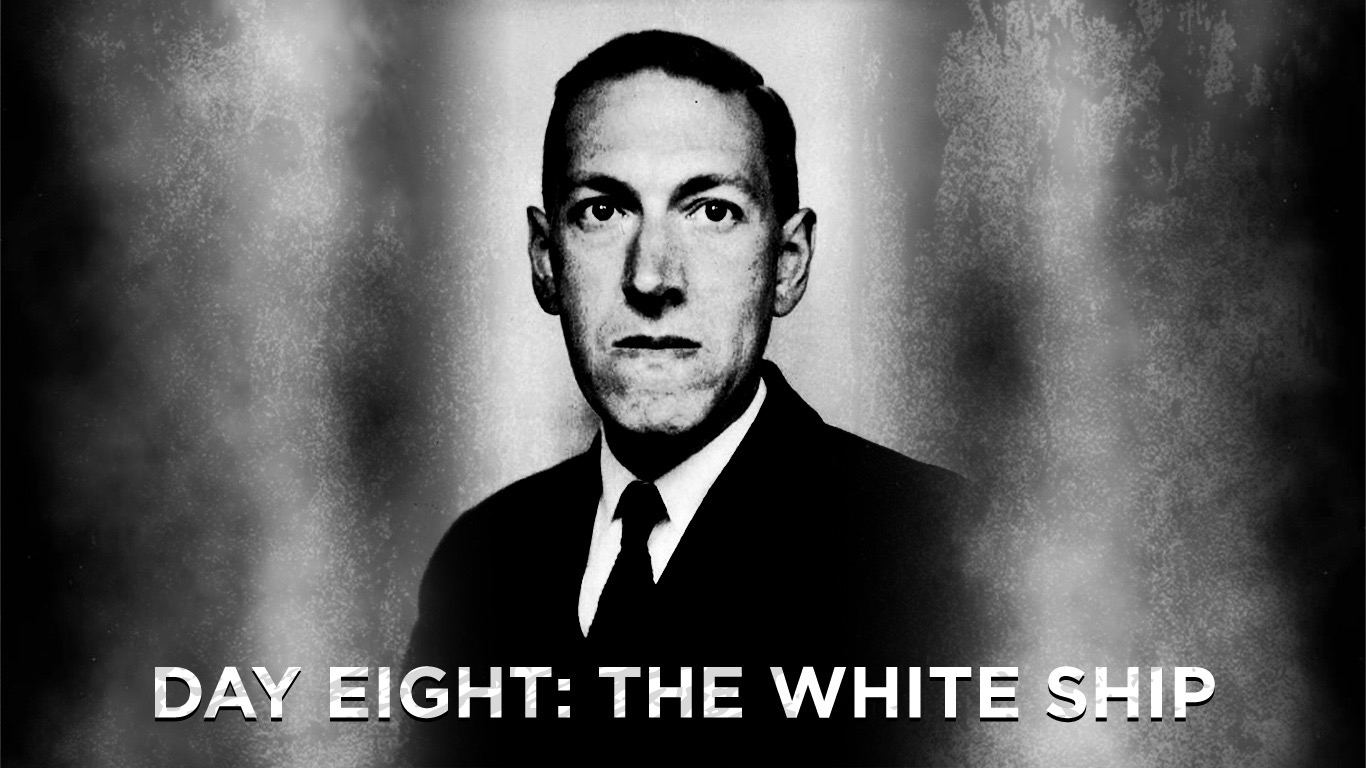The White Ship

One of the strange and unforeseen pleasures of my autumnal tradition—reading one tale per day from H.P. Lovecraft throughout October—has been the unsettling realization that, even after years of this ritual, there still linger tale of his prose yet undiscovered. Some of these forgotten works, it must be admitted, are but dim echoes of his grander nightmares, relegated perhaps justly to the fringes of anthologies. Yet, there are those—like “The White Ship”—that stir within me a deep, indescribable awe, transporting me, like poor Basil Elton, to realms that no human tongue can fully describe.
And thereafter the ocean told me its secrets no more; and though many times since has the moon shone full and high in the heavens, the White Ship from the South came never again.
Elton, our solitary lighthouse keeper, is drawn under the pale glow of the full moon to the phantom vessel of a bearded mariner, whose ship, like a thing of dreams, drifts on spectral seas. Across a shimmering bridge of moonbeams, he steps into uncharted dimensions, visiting lands forgotten by the waking mind—Zar, where unremembered dreams dwell, and Thalarion, a city of dreadful wonders from which no soul returns. They traverse Xura, a treacherous paradise that promises joy from afar, but exudes pestilence upon approach. And in Sona-Nyl, the land untouched by time, Elton lingers for untold eons, yet it is the elusive Cathuria, the “Land of Hope,” that calls to him with a maddening pull.
Against the mariner’s wisdom, Elton demands to seek this enigmatic land, and so they embark on a westward journey fraught with unseen peril. But Cathuria remains a phantom, and instead, they reach the world’s precipice, where the ship is swallowed into the gaping void beyond all existence. Elton awakens, shaken, upon the jagged rocks of his lighthouse, just in time to witness the doom of a mortal ship that perished in the darkened waters below—victim to his extinguished light. Haunted still by this eerie voyage, Elton later discovers the lifeless form of an azure bird and a splinter from the white ship, tangible remnants of his fateful passage into realms beyond human ken. The white ship, it seems, shall haunt him no more.